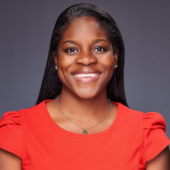A message from ANet’s leaders to our partners and friends:
Dear friend of ANet,
As we continue to grapple with COVID-19, we know things are different for everyone. For many of you, these last few weeks focused on ensuring your students’ basic needs were met on everything from meal distribution to internet access to learning packets. As the reality of school closures sets in and focus shifts to remote learning, we’ve seen an entirely new set of challenges and opportunities come up.
With so many changes to both the way your school community interacts and the work of teaching students, it can be difficult to know what to tackle first. At ANet, we’ve been focused on our mission of working alongside our school partners, hearing their needs and concerns, and leaning in to offer support. Below you’ll find perspectives from educators across the country on how they are leading and learning in this unprecedented moment.
1. USE THESE QUESTIONS AND RESOURCES TO GUIDE YOUR STRATEGY
One consistent reflection from leaders is that now more than ever, quality, equity-centered leadership matters. And, while so much is shifting, it is essential in this moment for us to pause, pull up, and take stock of the now and what’s next. Here are some questions to ask as you begin to build a path forward.
-
What are my students experiencing right now? What is the quality of teaching and learning? How is our strategy perpetuating or addressing gaps and inequities?
-
What strengths are educators (and parents) bringing to support students in their learning? How are we evolving structures to support them and building capacity to support one another?
-
What am I doing as we begin to plan for reentry in the future, knowing students and educators will be facing unfinished teaching & learning, possible trauma, and a new set of challenges and opportunities?
If you are new to ANet and interested in exploring immediate support, please contact partnerships@achievementnetwork.org.
2. LEARN ALONGSIDE OTHER EDUCATORS
The COVID-19 pandemic is challenging every institution in our country in new ways, and in times of uncertainty, people turn to their leaders for clarity and confidence. Hearing from fellow leaders can be invaluable as you navigate this uncharted territory.
Understanding how students are experiencing learning and life right now
-
Nikita Reed, Chief of Schools in Pinellas County, FL: These words from the Pinellas County leadership are exactly what we need today and every day: “Relationships before rigor. Grace before grades. Patience before programs. Love before lessons. We are all dealing with anxiety and uncertainty. We should continue to prioritize our collective humanity, especially as educators.”
-
Jonea Thomas, Principal of Bronx Arts Elementary School, NY: “We are being responsive to the pressurized circumstances our families are in, but we are still focusing on full days of fun, rigorous, engaging, standards-aligned, developmentally appropriate lessons.”
Helping teachers, families, and students adjust to things that feel different
“I’m new at this. The kids are new at this. We are all new at this. ”
-
A third-grade teacher in the Twin Cities, MN: “During this super strange time, I’ve been given one or two weeks to completely and absolutely re-learn and e-learn how to teach. I’ve had little notice and no professional development. We’ve had meetings, and we have guesses about what works best, but pretty much, we are all doing the best we can for our children…I’m new at this. The kids are new at this. We are all new at this.”
-
Jim Greene, Principal of Almira Elementary School, Cleveland Metro School District, OH: “Right now we are facing a traumatic situation that impacts our jobs, our families, health, and our livelihood…More than anything our staff need for us to be present as a consistent presence. They need for us to pause, reflect, and then act in leadership.”
Starting to think about bringing students back to school—and what that really means
-
A former teacher in New Orleans, LA: Although very different from the COVID-19 pandemic, Hurricane Katrina also created instructional disruption. One teacher reflected on the challenge of responding to students' needs in the fall and a cautionary reflection on not overly relying on quick fixes: “In the more immediate aftermath of Katrina, there was a lot of money being poured into the education system. A lot of it went towards purchasing intervention programs that were pretty scripted and 'out-of-the-box' in nature. They felt like a woefully inadequate Band-Aid, both for student learning and teacher development.”
“The hard truth is that the largest loss will be experienced by our students of color, those living in poverty, students with special needs, and English language learners. ”
-
Dr. Jesus F. Jara, Superintendent in Clark County, NV: Dr. Jara has been looking closely at how lost instructional time will impact his community so he can begin to plan ahead. “The hard truth is that the largest loss will be experienced by our students of color, those living in poverty, students with special needs, and English language learners.” His team is beginning to look at what content will not be covered this year and how it will fold into the next academic year. “We need to be bold. We need to take action.”
We’re looking forward to listening and learning alongside you as we navigate new ways to support the students and communities we serve.
In partnership,

Michelle Odemwingie
